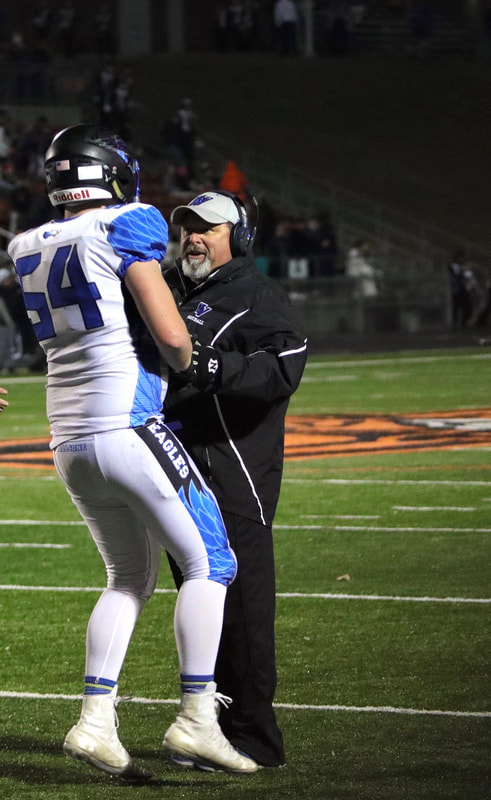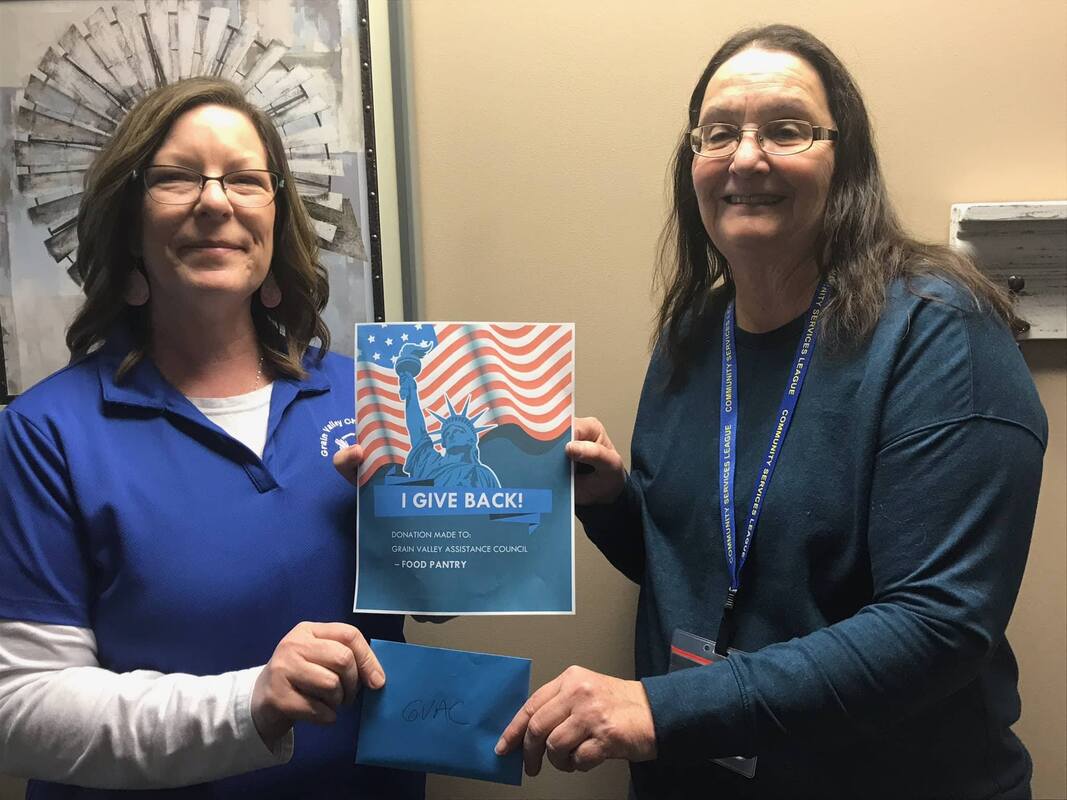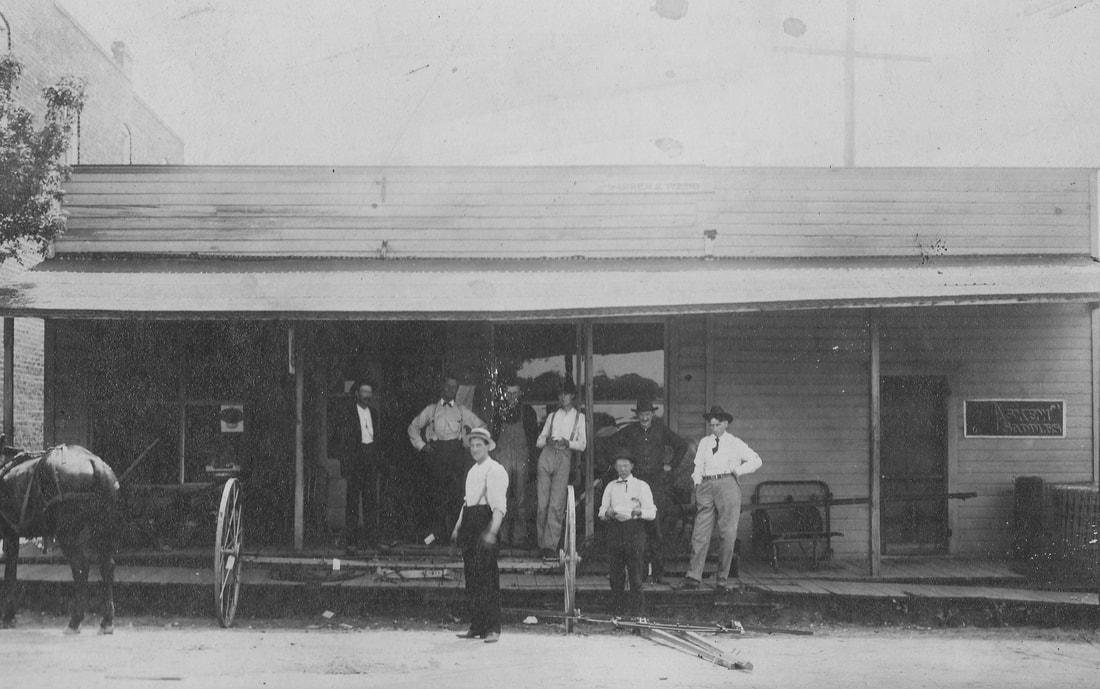|
|
by John Unrein The sign hanging above the exit of the Grain Valley Boys Football locker room reads, “All that is not given is lost.” The message is clear for the expectation of what is to be left on the field by those who play football for the Eagles. A labor of love keeps you pushing to be the best in a chosen field. Paying attention to details and working outside the defined parameters of a scheduled time period can be tiring. It may also pay future dividends as well. Thus, is the grind of being a head football coach toiling through the offseason. Roman Emperor Marcus Aurelius noted that “The secret to victory lies in the details of the non-obvious.” Time spent studying, evaluating, and changing based on what you’ve invested in learning can greatly aid your preparation. Grain Valley Eagles Head Football Coach David Allie and his staff put together a 9-4 campaign last season in the Suburban Conference, one that produced a six game winning streak from October 11th to November 15th in route to being crowned the Missouri Class 4, District 7 football champs. One might wonder what that preparation looks like for a successful football program who has not coached before or familiar with the sport. Allie took some time to share a glimpse of what that looks like with Grain Valley News. Studying film of yourself to identify if you have noticeable tendencies as on offense through formation, motion, or by the play you call on down and distance is a way you to reduce or eliminate your predictability to opponents. It’s can be tedious and time-consuming work. “In the offseason we do a lot of self-scouting to help us determine the success and limits of plays we ran in 2019. HUDL (filming tool and data warehouse) provides a large number of areas for us to examine, and we try to use as many as we can to help our evaluation for obvious things like down, distance, field position, and hash when it comes to offensive play calling,” Allie said. “We can also get efficiency reports for individual plays, time of game scenarios, and quick change of possessions, etc. During the season, we also divide it into different parts or thirds, (non-conference games, conference games, and playoffs) and evaluate that way as well. Generating data allows us to be analytical when we break things down.” “Another area we examine is our success against different offensive and defensive schemes. We want to go into next season comfortable with a general game plan for each team on our schedule.” Allie added, “One of the challenges that has our coaching juices flowing this offseason is that we are moving into a new conference division and only playing three schools we played last year. We are evaluating film of the other teams on our schedule so that we have a general idea of what we will be facing.” Football coaches also leave the comfortable confines of their home and families in the offseason to grow as professionals. Most of the major division one college football programs in the Midwest have a history of hospitality when it comes to hosting high school coaches during the spring months. The obvious motivation is that it’s good for recruiting and networking. Past that, knowledge is generally shared freely about how things are done by those who are willing to make a trip to campus. “As a football coach, we are on a different season schedule than the rest of the world – regular season, clinic season, offseason, and summer. Clinic season is always exciting because we either get to see new things to do or new ways to do things we currently implement,” Allie said. “We always get a staff pass for the Glazier Football Clinic series. Many of us went to the Kansas City and St. Louis sessions this year. We get to hear a variety of speakers from all levels (youth to NFL) talk about a variety of relevant topics. As a staff, we try to hear as many speakers as possible and then share what we learned with each other to maximize our exposure.” “The usual offensive, defensive, and special teams’ schemes are a big part of what we watch, but I also feel program culture and strength and conditioning are important topics as well, and we spend a lot of time looking for those subjects.” “We are lucky to live in Kansas City because we have a vibrant football culture. The Greater Kansas City Football Coaches Association general meetings provide an opportunity for the exchange of ideas through guest speakers and collaboration.” “Another thing we like to do is attend college spring practice. Meeting with coaches about schemes, watching film cut-ups, sitting in on position meetings, talking to staff, and attending practice always allows us to come away with something worthwhile to use.” Allie concluded, “We were really looking forward to going to Kansas State this month. However, the coronavirus thing has halted that possibility.” Only one varsity assistant football coach has left during Allie’s time in Grain Valley since he took the helm in 2015. Consistency among a football staff is important because the buy-in is noted by the players. It also allows peers to challenge one another in their thinking, affirm thoughts, ask each other questions, and be a trusted face in a demanding and unforgiving sport. Allie shared what he looks for in the coaches he works with on his staff. “Knowledge of the game is important, but you must possess the ability to build relationships with student athletes. That is probably the most important attribute I look for in a coach,” Allie said. “It should be a given that they (coaches) have to understand that we have to be ‘all-in;’ they have to know they must put in a lot of work along with wanting to get better at their specific duties.” Allie most importantly wants someone who will put the kids first. “The key to all successful teams is the strong relationships between staff members, the players, and between the staff and players. Having a positive attitude or demeanor is also nice.” Grain Valley High School offers strength and conditioning classes during the school day. They are co-ed and have a mixture of athletes and general students. Furthermore, an advanced class is offered that is just made up of co-ed, upper class athletes. Enrolled students typically lift every other day due to block scheduling. Prior to the suspension of school due to COVID- 19 concerns, Allie was seeing 20-30 students work out after school. The classroom lifting focuses on core lifts while the after school program places more emphasis on supplemental exercises, functional power development, and agility/speed training. Eighth graders are also encouraged to ride a shuttle bus over to the high school to work out after school. Allie was pleased with the after school turn out he was seeing. “Coach (Pete) Carpino runs the strength program for the school and oversees the advanced group. He does a good job with our athletes,” Allie said. “We are also averaging about 30 eighth graders who are coming over to get ready for next season, which we are extremely proud of. The emphasis for those athletes is proper form, technique, and etiquette for how you communicate and act. This allows them to be ready to join the older kids when we start our summer program.” Allie summarized, “As most coaches understand, our biggest gains in the strength and power development happen in the offseason. The critical mass we build (no pun intended) with our players through the summer months is vital, both from an athletic and teambuilding standpoint. I am glad we have the in season class opportunities, and I think it is possible to maintain, if not gain a little, during the school year. Not to mention having a better opportunity for rehabilitation of sore and injured muscles. But by far our most critical time is January through May and then May through July.” Balancing academic, social, and extra-curricular activity can be a handful for a high school student of any age. Like a shepherd tending a flock, Allie has a big task in staying in touch with his players during the offseason. The classroom, social media, and face to face conversations are all ways to stay in touch and have a pulse in what’s going on in the lives of players. “Face to face conversations is what I prefer, and the best place I get to do that is in the hallways, classroom, or lunch duty that I usually have every other day,” Allie said. “Position coaches try and meet with players every other week that they don’t have previous commitments to stay in touch. We also utilize email, Twitter, Instagram, and text messaging platforms to get out needed communication.” “Many of us teach using Google Classroom. I have a class set up for our players and use this more and more to deliver paperwork, our monthly newsletter, and other initiatives (especially now). The good old-fashioned method of writing our players notes also works.” Much goes into building and maintaining a successful high school football program. Allie, his staff, and Eagle student athletes are hard at work paying attention to the non-obvious details. Eagles Head Football Coach David Allie celebrates with Junior Jack Bailey.
Photo credit: John Overstreet by John Unrein High school athletic events and activities are an extension of the classroom. Student athletes experience the lessons of competition and sportsmanship that come with representing themselves, their teams, school, and community. Knowledge garnered through winning and losing and the preparation it takes to be successful as a participant are truths that stick with us throughout life. Promoting that fair play exists in Missouri at the high school level are Missouri State High School Activities Association (MSHSAA) officials. Men and women who give time to a sport they love and likely played during their teenage years. Nights and weekends away from home and families are typically the cost that comes with fostering rules and enforcing them. Ken Holland is a Grain Valley resident and MSHSAA official. Holland started his career as a teacher and coach at Concordia High School in 1985. Subsequent stops as a high school principal at Wellington-Napoleon and Crest Ridge High School in Center View Missouri rounded out his tenure. The retired Missouri public educator can be seen on softball fields and the basketball hardwood in our community. Holland has been officiating for the last six years since leaving education. His motivation for doing so has been the atmosphere of competition and getting to witness kids perform at a high level. “As a basketball coach, I taught my girls to play physical and be willing to give up fouls. As a referee, I have to officiate completely different,” Holland said. “I enjoy officiating and seeing people who work hard for kids by getting themselves in position (to make a call), work well in a three person team, are consistent, and communicate well with kids and coaches in a positive manner.” Holland continued, “I love being part of a team and my team now is the MSHSAA officials I work with.” Advice is not something that Holland is shy about sharing when asked what he would offer to those new to the job. “Officiating is about willingness to grow, not quitting, and taking constructive criticism from those who are elders in the profession. You can read a rule book three times and feel prepared only to have something come up during a game that’s not in the book. You never forget those lessons or experiences,” Holland said. Working games in the Kansas City suburban area has left Holland with some good stories to share. He paused momentarily to think of the best one to provide. “I was at Lee’s Summit High School after the third quarter on the sideline during a timeout getting ready to have a team inbound the basketball. A cheerleader doing a tumbling routine stuck the landing right in front of me with only inches to spare. I simply replied, ‘Good job’ and got the game started after she cleared the court,” Holland said. MSHSAA is active in supporting their officials to make them as prepared as possible. Officiating mechanics clinics are offered around the state of Missouri. Rule meetings as well so that professional development continues for those who wear the uniform. MSHSAA also puts out an annual officiating manual as a reference. Holland is pleased with what the Missouri State High School Activities Association does in teaching its football and basketball officials. Wanting to see that same level of training for other sports is an opportunity for growth in Holland’s eyes for MSHSAA. “Training for MSHSAA umpiring is top rate for football and basketball. I would like to see the same type of training for softball, volleyball, etc. Fostering learning at the same level for sports outside of football and basketball would be nice,” Holland said. It has been well documented throughout the United States that there’s a current shortage of high school officials. The average age of those refereeing sports is increasing, and concern is growing about who’s going to replace those individuals when they hang up their whistles and gear. The National Federation of State High School Associations has cited a study they conducted recently reporting that around 80 percent of new officials give up the avocation after two years. The main reason listed for quitting is abuse by parents and coaches. Holland shared his thoughts about why the current officiating shortage exists and what can be done to promote drawing more people to the sideline as officials. “Fans being hard on young officials and the entitlement of kids. It’s a completely different mindset of our kids today with not wanting constructive criticism. Seasoned officials are getting out because they don’t want to put up with abuse from the fans. Young officials don’t want to put up with the verbal abuse either,” Holland said. “Many student athletes have been successful, and they should give back by helping the sport that was good to them in a manner they deem appropriate. Refereeing or umpiring is a good opportunity to do so.” MSHSAA has joined the movement in recent years in attracting new people to officiating. Kenny Seifert is the Director of Officiating for MSHSAA. The Trade Your Stripes program is a new initiative that has been promoted by Seifert and MSHSAA throughout the 2019-2020 school year. As a tribute to veterans and active military, MSHSAA is waiving first year registration fees. Seifert has shared on the MSHSAA website his thoughts about the Trade Your Stripes program. “We are asking veterans to trade their military stripes in for officiating stripes. The Trade Your Stripes program was the idea of Mike Pereira, the former Vice President of Officiating for the National Football League and current rule analyst for Fox Sports,” Seifert said. “Pereira has initiated a national foundation named Battlefields to Ballfields. It will pay for uniforms, dues, equipment, training materials, insurance, and a mentor provided trainer that will follow you as you move up the ladder in officiating. Those interested in learning more may visit the Battlefields to Ballfields website.” “In some areas of high school officiating, retirements are happening faster than new licenses are being issued. Underclassman games are being postponed or cancelled in some parts of the country due to officiating shortages.” “Subtract the dedicated men and women who officiate high school sports and competitive sports would no longer be organized; they would be chaotic.” Seifert concluded, “Becoming a licensed official is a great way to become involved in your community. For those who played high school sports, officiating is a great way to stay close to the sport after their playing days have ended. Being an official expands your social and professional networks while allowing you to stay in shape.” For more information on how to become a MSHSAA official, visit https://www.mshsaa.org/Officials/ MSHSAA official and Grain Valley resident Ken Holland makes a call on the softball diamond. Photo courtesy: Ken Holland
Grain Valley residents have reached out in formal and informal ways in the past week to help those feeling the impact of the stay in place orders imposed as a result of COVID-19. For instance, Grain Valley Chiropractic presented the Grain Valley Assistance Council a check for over $500 on March 25th.
Fundraising from Grain Valley Chiropractic patients and the general public continues online via the business’s Facebook page. Photo L to R: Cathy Dowd, DC, and Donna Compton, Grain Valley Assistance Council. Photo courtesy of Grain Valley Chiropractic. It was business as usual for the March 23rd Board of Aldermen meeting, even though the Council Chambers was empty. Due to COVID-19 concerns, the Board of Aldermen for the first time conducted business via tele-conference, with public access to the meeting available through dial-in access. Despite the occasional dog bark, the meeting proceeded in usual fashion.
The Board approved an ordinance changing the zoning on approximately 1.2 Acres from Downtown Transition Zone to R-3P (Multi-Family Residential District Planned Overlay District) and approximately 1.9 Acres from C-1 (Central Business District) to R-3P (Multi-Family Residential District-Planned Overlay District), approving the preliminary development plan for the Lofts at Old Towne Marketplace. The development, located at 201 SW Eagles Parkway, will consist of 154 rental units and a mixed-use indoor amenity center. The development includes demolition of the building that previously contained the former Patricia’s Foods and Hardware store. A new four-story building (Building A) includes the first-floor mixed use amenity level and 64-rental units in three additional floors. There will be three mostly identical three-story apartment buildings (Buildings B, C, and D) containing a total of 90 units on the vacant tract to the west. COVID-19 concerns were on the agenda as well, with the Board approving an ordinance to establish procedures outlining processes for the City to declare a state of emergency in certain situations. This paved the way for a proclamation from the Mayor addressing the current state of emergency in the City of Grain Valley. The next Board of Aldermen meeting will be held April 13, 2020. An executive order by Jackson County directed residents to stay at home except for essential needs beginning Tuesday, March 24th. The order, similar to those being issued throughout the country, intends to help “flatten the curve” of coronavirus infections in the area. The order is in place for 30 days, at which time the need will be reassessed.
Grain Valley Schools joined other area districts in extending their closure through at least April 24th. All school district facilities remain closed for student or community use for the duration of the school closure. All activities and practices are canceled during the school closure. The district stated the Valley Kids before and after school program remains closed, but they are exploring the possibility of providing daycare for children of parents and guardians in the medical professions and other first responders in the community. The district will begin its Grab and Go lunch program for families begins on Monday and will proceed as planned. Any modifications that need to be made to this program will be communicated with those directly involved. Grain Valley City Hall, Community Center, and City parks are closed to the public in line with the County’s stay in place order. Utility customers are asked to pay their water bills online, over the phone, or by submitting payment to the drop box on the north side of City Hall. The City of Grain Valley has also announced it will not disconnect water service for non-payment through June 30th. The Grain Valley Police Department, in a tweet dated March 16th, stated officers would respond in person only to emergency calls for service. All other calls/reports will be handled via telephone. For non-emergency calls, residents are asked to call Jackson County Dispatch at 816-795-1960. Street patrols will continue by officers. The City has established a page on its website to share information related to COVID-19:https://www.cityofgrainvalley.org/covid-19-community-information/. Numerous churches and community organizations as well as the Mid-Continent Public Library and YMCA have also announced closures. Valley News will continue to share cancellation information via social media and on our website, www.grainvalleynews.com, as it becomes available. The following information is derived from the Grain Valley Police Department daily calls for service log for the week of March 11-17, 2020.
Jackson County Public Works Environmental Health Division inspects all restaurants, grocery stores, schools, mobile food and temporary food establishments in the City of Grain Valley. The following violations were reported in the last 30 days:
Sushi Avenue 1191 NE Mc Querry Rd. The storage shelves that hold clean utensils had an accumulation of food debris. Correct by 4/24/2020 Valley Pub & Patio 640 NW Yennie St. Chemical spray bottle at the bar was not labeled. Corrected on site. Employee labeled the spray bottle. Several containers inside the make table cooler did not have a use by date. Corrected on site. Employee labeled the containers. The gaskets and the floor base of the reach in cooler are torn and in disrepair. Correct by 4/26/2020. Casey's General Store #2209 1251 AA Highway Container of opened egg salad had no date marking. Corrected on site. Manager placed expiration date on the egg salad. Clean utensils were stored while still being dirty with stuck on food debris. Corrected on site. Utensils were cleaned and sanitized by manager. The inside of the handles to the pizza reach in cooler at the make table had stuck on food debris. Missing ceiling tile in the back storage area. Correct by 5/5/2020. Cheezteak Company 1452 SW Eagles Parkway Mouse traps were uncovered. Corrected on site. Manager discarded all mouse traps. 1. Soda nozzles had a buildup of residue. Corrected on site. Manager cleaned and sanitized all nozzles. 2. All three can openers had stuck on food debris. Corrected on site. Manager cleaned all can openers. 3. Knife magnet had stuck on food debris. Corrected on site. Manager cleaned the knife magnet. 4. The meat containers in the pull-out drawer cooler under the grill has an accumulation of dried food debris. Corrected on site. The containers were taken out and cleaned and sanitized by the manager. Uncovered vegetable containers in the reach in cooler. Correct by 5/5/2020. 1. The reach in cooler and the reach in freezer has an accumulation of dried food debris. 2nd repeat violation. 2. The reach in cooler to the make table that is not is use, has an accumulation of debris behind the lid, and soil residues in the bottom of the cooler. Manager stated they no longer use that reach in make table cooler. 3. The pull-out drawer coolers under the grill has an accumulation of food debris. Correct by 5/5/2020. The floors under all equipment has an accumulation of dust, dirt and other debris. Correct by 5/5/2020. Mactan Asian Market 1438 SW Eagles Parkway No violations recorded. Inspection date 3/6/2020. Essex of Grain Valley 401 SW Rock Creek Lane Shelled eggs were being stored above ready to eat foods in the fridge. Corrected on site. Employee moved the eggs to another fridge and placed them on the bottom shelf. Package of opened raw sausage was stored in the fridge without any date markings. Corrected on site. Employee was unaware of the open and thaw dates so the item was discarded. The handles on the tops of the drawers have accumulation of dried food debris/crumbs. Repeat violation. Shelled eggs were being stored above ready to eat foods in the fridge. Corrected on site. Employee moved the eggs to another fridge and placed them on the bottom shelf. Opened package of raw sausage was being stored in the fridge without any date markings. Corrected on site. Employee was unaware of the open date of the food the food was then discarded by employee. America’s Best Value Inn 105 Sunny Lane Drive Soap was not provided at the hand sink. Corrected on site. Single-service cups were being stored on the floor. Corrected on site. In a settlement agreement signed by former City Administrator Ryan Hunt and the Mayor and Board of Aldermen on February 24, 2020, Hunt was awarded $295,000 and received transfer of title for a City truck previously assigned to Hunt for use during his employment.
The settlement includes $95,000 in alleged lost wages, $155,000 for alleged personal injury, and $45,000 for attorneys’ fees, payable to Hunt’s attorneys White Graham Buckley & Carr LLC. The City also agreed to transfer title for the pickup truck and ensure the vehicle is returned in the condition it was in before being stolen from Hunt’s driveway and later recovered. The agreement also stipulates that Hunt’s employment record be amended to reflect Hunt voluntarily resigned from the position and not terminated by the City, stating he is eligible for re-employment. Reached for comment, Mayor Mike Todd and the City of Grain Valley declined to comment on the matter. Hunt did not respond to a request for comment. by Marcia Napier, Grain Valley Historical Society The back of this photo is dated “about 1900” and identifies the owners as William Warren second from the left) and Tommie Webb (lower front). The other gentlemen include Watson Hendricks (in front) Orie Morrison (3rd from left), Nob Alexander, Bill Brammer and two are unknown.
In the 1910 United States Census, Thomas (Tommie) Webb was listed as 60 years-old, single, a merchant and living as a border with the Edward Williams family in Grain Valley, Missouri. After spending a couple of hours on the internet, I can only say this is my best guess. There are at least four Thomas Webbs in ancestry, all living in the area at that time; however, the Williams Home was just a block north of the hardware and he was the only one listed as a merchant. William A. Warren is much easier to identify. In 1900, he was already the third generation of the Warren Family living in the area. Benjamin and Lucinda Warren came from Tennessee in 1843. They settled at Tarsney Lakes with their children, including Zachariah. He married Nancy Terrance on March 24, 1850. William Andrew was the fifth of their eleven children, born May 20, 1856. William A. and his wife Mary were the parents of William Durwood “WD” Warren, founder of the Bank of Grain Valley. The Warren Webb Hardware was built on the north side of the railroad tracks on Broadway (now Main Street). Exactly when it was built is unknown to me, however Warren died in 1914. Perhaps that is when the name changed to Loring Hardware. William H. Loring and his wife Ada ran the store until his death in 1930. After that, Walter Hoehn ran the store. Other than a new roof and asphalt siding, the building had remained much the same when Charles and Mildred Napier purchased it from Cecil and Anna Louise Poage in 1949. The store no longer sold Askew Saddles as the sign on the right of the building advertised, but it did sell about anything else one might need. Sewing machine needles, baby clothes, dishes, garden seed, Cook’s paint, and nails. A garden plow, tools, window glass and washing machines. You name it, you could probably find it at the hardware. In 1954 the name was changed to Napier Hardware, Plumbing & Heating. The store burned along with the old hotel, in the background, in December 1959. Since that time the property has been a parking lot.  by Phil Hanson, President and CEO, Truman Heartland Community Foundation This is a very challenging time for our community. Acknowledging the health, economic and community crises we are all up against with COVID-19, I’d like to expand the conversation beyond cleaning your hands and practicing social distancing to how we as a community can help each other get through this crisis.
There is a lot of uncertainty in our lives right now. It’s disruptive and unsettling. And while we cannot predict how things will unfold in the weeks and months to come, I have faith that we can count on each other. Our news feeds are flooded with coronavirus updates, but in the last week more and more stories of community outreach are emerging. Community Services League (CSL) rapidly redesigned its emergency assistance programs to continue serving their neighbors in need while doing everything they can to keep their staff safe. Each of the school districts in Eastern Jackson County have quickly organized a school lunch program where students can pick up lunch to go. The Raytown Christian Church has mobilized a network of churches and volunteers in Raytown and revamped their summer lunch program, to provide food assistance now to their neighbors in need. People all over the community are stepping up to support nonprofits and families in the community. This is a critical time for nonprofits and agencies that serve those most vulnerable in our community. There is no doubt that increased spread of the virus and social distancing methods to limit the spread are having a big impact on our region. Local health clinics and hospitals may soon be at capacity with patients. Nonprofits working with individuals and families experiencing job loss will need increased support to provide access to food and supplement lost wages in order to make rent and mortgage payments. Many of these nonprofit organizations had to cancel fundraising events, creating even more strain during a time of increasing need for their services. There will be financial support from the federal government, however, many people will be seeking help for the first time and will need the assistance of local nonprofits to navigate the process. Truman Heartland Community Foundation is continually assessing community needs during this challenging time. We are in communication with community leaders and organizations to learn how we can best support our community. During this unprecedented crisis, we are encouraging our fundholders with Donor Advised Funds to be generous with grants from their fund to nonprofit organizations who are battling to address the growing needs. We are ramping up our communication with our fundholders to keep them updated on where their support can make a big difference. Our community is very fortunate to have dedicated local governments, school districts, and health care providers working hard to ensure that our communities remain safe. And we are fortunate to have many strong nonprofits and their supporters who are helping us reach out to our neighbors in need dealing with both the health challenges and the economic fallout of the crisis. The situation will continue to evolve and change daily. What remains the same is that we can count on each other. It will take us coming together as a community to overcome this challenge, but rest assured that we will. Stay safe and healthy. Phil Hanson is the President and CEO of Truman Heartland Community Foundation. Truman Heartland Community Foundation (THCF) is a 501(c)(3) public charity committed to improving the communities in and around Eastern Jackson County through cooperation with community members and donors. THCF serves the region with assets of more than $54 million and annual grants surpassing $4.8 million. For more information on charitable giving, visit www.thcf.org or call Truman Heartland at 816.836.8189. |
Categories
All
Archives
July 2024
|
Grain Valley NewsGrain Valley News is a free community news source published weekly online. |
Contact Us |






 RSS Feed
RSS Feed
